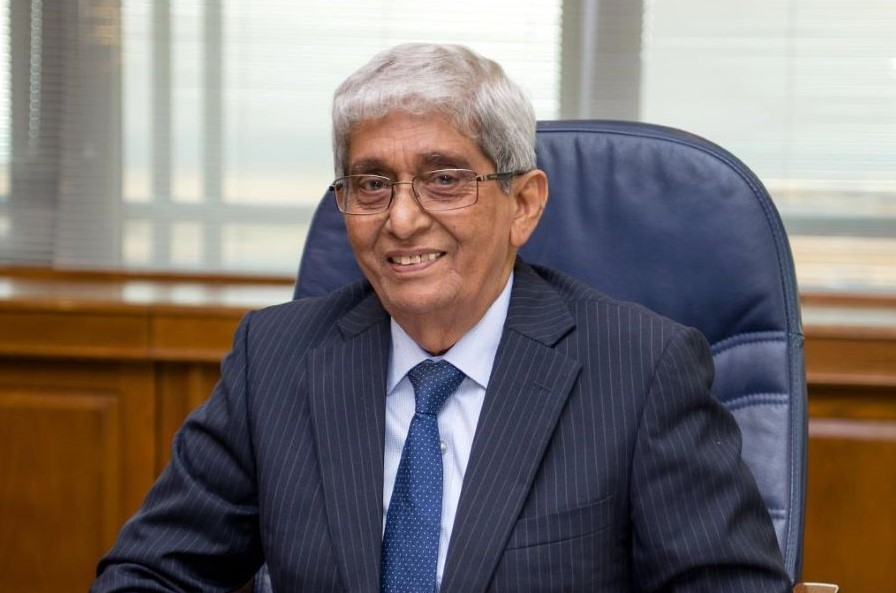IMF Alternate Executive Director position that Prof. W.D. Lakshman rejected
Prof. W.D. Lakshman, Governor of Central Bank of Sri Lanka has decided to retire ‘prematurely’, however, at the age of 80 years, due to certain worries that he declines to reveal. His bosses in the Rajapaksa family have been alleged of notorious behaviour against some officials and it is yet to be revealed what they have done to this old man to make him so distressed to vacate the post.
Meanwhile, the Rajapaksas are going to appoint a practising politician, present State Minister Ajith Niward Cabral as Lakshman’s successor. Opposition MP Eran Wickramarathna said that such a move was illegal.
In his Zoom press briefing, the outgoing Governor said that he had declined a lucrative offer from IMF to accept the post of Alternate Executive Director, due to his policies and principles. The background of the academic shows that he was a Marxist who even held the post of Chairman of the leftist Social Scientists’ Association (SSA) of Sri Lanka.
However, our searches on the position of Alternate Executive Director of IMF led us to learn that there is a way the Alternate Executive Directors are appointed to IMF. According to the sources from the e-library of the IMF, it is operated by the Executive Board, under the chairmanship of the Managing Director, through powers delegated to it by the Board of Governors.
‘It is the policy-making organ of the IMF, and is responsible for the approval of all IMF lending operations. Size and Composition The Executive Board currently comprises 24 Executive Directors, each of whom appoints an Alternate with full power to act for him/her when he/she is not present.
‘Five Executive Directors are appointed by the five-member countries having the largest quotas—currently the United States, Japan, Germany, the United Kingdom, and France—and serve at the discretion of the appointing member. The remaining 19 Executive Directors are elected by the rest of the membership (180 member countries) and serve for renewable two-year terms. Elections are normally held at the time of the annual meetings of the Board of Governors, in even-numbered years, but by-elections are held when needed. From among the 180 member countries that elect 19 Executive Directors, Saudi Arabia, China, and Russia, by virtue of the size of their capital subscriptions to the IMF, are able on their own to elect an Executive Director.’
However, the Alternate Executive Director post is not related to the Executive Directors mentioned above. ‘The remaining 177 member countries are organized into 16 multi-country constituencies to elect the remaining 16 Directors on the Board. Members decide among themselves which constituency to join, and vote for an Executive Director to represent the constituency. Geographical considerations have generally been important in the formation of constituencies, but some constituencies include both industrial and developing countries or members from different regions. In some constituencies, the Executive Director is selected from the country with the largest voting power, while in others the post is rotated. Normally the Alternate Executive Director in multi-country constituencies is of a different nationality from the Director.’
Probably some constituency has offered this position to Prof. Lakshman. What is that constituency? Bangladesh, Bhutan, India and Sri Lanka belong to one constituency and presently the Director is Surjit Singh Bhalla while the Alternate Director is Yuthika Manjiri Indraratna. Dr. Yuthika Indraratna was former Director of Economic Research of the Central Bank of Sri Lanka. The Executive Director is elected while the Alternate Executive Director is named by the Executive Director.
List of IMF Executive Directors and Alternate Executive Directors, click here
IMF Executive Board removed the age limit for the position of IMF Managing Director in 2019. Previously, the maximum age for the person who bears the position was 70 years. According to the previous practice, no person above the age of 65 years was appointed as Executive Director. We could not find out the maximum age of an Alternate Executive Director.
Regarding the lucrative salary that Prof. Lakshman mentioned as he had declined, the IMF regulations say as follows: ‘Executive Directors and their Alternates shall be entitled to remuneration in the form of salary and supplemental allowances at such annual rates as shall be determined from time to time by the Board of Governors. Remuneration as determined shall continue until changed by the Board of Governors.’ (Source: here)

